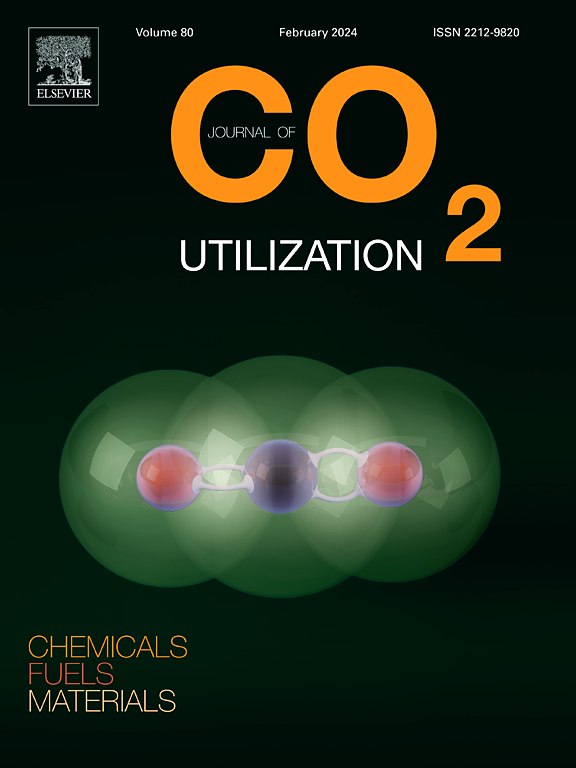Optimizing hydrogen production from wastewater-derived sewage sludge via alkali-catalyzed supercritical water gasification
IF 8.4
2区 工程技术
Q1 CHEMISTRY, MULTIDISCIPLINARY
引用次数: 0
Abstract
The increasing global wastewater generation and reliance on fossil fuels for energy production necessitate sustainable treatment and energy recovery solutions. This study explores supercritical water gasification (SCWG) of sewage sludge from municipal wastewater as a hydrogen production pathway, focusing on the role of alkali catalysts (KOH, K₂CO₃, Na₂CO₃). The effects of temperature (450–550°C), reaction time (5–30 min), and catalyst type on gas yield and efficiency were analyzed. At 550°C, the highest carbon efficiency (61 %), gas efficiency (69 %), and hydrogen yield (41 mol/kg) were observed. After 30 min, the gas composition reached H₂ (58 %), CO₂ (26 %), CH₄ (11.7 %), and CO (4 %). Among catalysts, Na₂CO₃ exhibited superior H₂ yield (29 mol/kg), carbon efficiency (58 %), and gas efficiency (51 %). This study highlights SCWG as a viable technology for hydrogen-rich gas production, contributing to sustainable energy solutions and wastewater valorization.
碱催化超临界水气化废水污泥制氢优化研究
随着全球废水产生量的增加和能源生产对化石燃料的依赖,需要可持续的处理和能源回收解决方案。本研究探讨了城市污水污泥的超临界水气化(SCWG)作为制氢途径,重点研究了碱催化剂(KOH, K₂CO₃,Na₂CO₃)的作用。分析了温度(450 ~ 550℃)、反应时间(5 ~ 30 min)和催化剂类型对产气率和效率的影响。在550°C时,观察到最高的碳效率(61 %)、气效率(69 %)和产氢率(41 mol/kg)。30 min后,气体组成为H₂(58 %)、CO₂(26 %)、CH₄(11.7 %)和CO(4 %)。在催化剂中,Na₂CO₃具有较好的H₂产率(29 mol/kg)、碳效率(58 %)和气体效率(51 %)。该研究强调了SCWG作为一种可行的富氢气生产技术,有助于可持续能源解决方案和废水增值。
本文章由计算机程序翻译,如有差异,请以英文原文为准。
求助全文
约1分钟内获得全文
求助全文
来源期刊

Journal of CO2 Utilization
CHEMISTRY, MULTIDISCIPLINARY-ENGINEERING, CHEMICAL
CiteScore
13.90
自引率
10.40%
发文量
406
审稿时长
2.8 months
期刊介绍:
The Journal of CO2 Utilization offers a single, multi-disciplinary, scholarly platform for the exchange of novel research in the field of CO2 re-use for scientists and engineers in chemicals, fuels and materials.
The emphasis is on the dissemination of leading-edge research from basic science to the development of new processes, technologies and applications.
The Journal of CO2 Utilization publishes original peer-reviewed research papers, reviews, and short communications, including experimental and theoretical work, and analytical models and simulations.
 求助内容:
求助内容: 应助结果提醒方式:
应助结果提醒方式:


